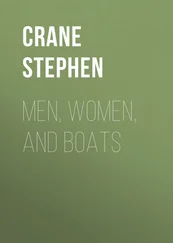Clara had to get dinner. For a husband. Why was she here? Grace didn’t think she had to ask and didn’t. Yet Clara at last, as if in the backward tilt of her neck quietly getting something out of Grace, brought out that they were from Chile.
Far out, was what Grace said, off her beat a little seeing the fine face of this woman solve what Grace’s words meant; so Grace mentioned a woman, first name, who’d been she was quite sure in the Peace Corps there seven eight years ago—’68?
Clara, a well-to-do South American girl who had probably married young, surely had children, yet seemed almost not to. She said they were not here, they were grown. But what was this English accent? it was more than a trace.
Something had been happening in Chile, Grace remembered, you might as well read the newspaper the super did, because they all lied. Grace stood in an open place somewhere, helpful, open. This Clara was going at another rate inside. Clara had to think about dinner. All right, then, really think about dinner. Where is he on his way down to the plate with his knife and fork? Working. Working for what is best for both of you? Make dinner for a past, present, and future husband, which is promiscuity.
Yet Clara was coming from somewhere Grace didn’t quite feel. Like a type of danger you didn’t need to go through to understand. Grace felt the cramp of Clara’s need, her hands like faces, eyes Grace wouldn’t quite catch; smelt beef grease in her pores responding to her husband’s, and the pure chemical breath of the double Gibson’s crystal ball, the baby onion waiting at the bottom of the martini like a lab vegetable or chilled fluff of cum, it’ll wait; but no, Clara and her husband (he who in the absence of all information, except some hint that he was important, seemed more foreign than she) would be winos, not martini drinkers; and Grace felt husband very foreign, with a moustache rinsed in after-shave. The woman gave no hint of him. Grace maybe like the goddess thought Clara had left and come back.
Get it together: keep generally women and men apart. Nationwide chain of pleasure bath-houses, women to women, bodies loved like selves as selves should be — and are like bodies (write that down).
At some point Clara had asked if Grace had any children.
Not to my knowledge, Honey. Two miscarriages, no abortions, possible sperm-bank option, short list of preferred candidates.
Then Clara made one of these big efforts and Grace felt for her and Grace’s eyes watered, Clara’s effort to both say it and keep from saying it: "I could have another." The eyes staring at Grace, concern across the forehead, the restless one hand held down by her leaning her weight on it, the other clenched on her thigh.
"Do you need that, now?" Grace asked. And, not adding questions and answers but letting it drop seemed to let go in Grace a guess at the truth about this woman. The word "politics" from last night wouldn’t go away. Grace didn’t need to read the newspaper to know. But the word was old, she heard her father say it and he was talking of the Mayor, and she heard the word come out of the mouth of the man she would show, but she had shown him already, if he was watching, and what had he meant by it? Politics meant men and women now. She didn’t trust this woman not to know something she wouldn’t be able to help her with. Was that it? Their conversation groped gently.
Well, pleasure houses for women maybe, but—"But," Grace’s old friend Cliff had said, "men have always had their gyms and steam rooms, so the idea isn’t new."
Grace projected toward Clara the words "To earn what you have had, empty your hands of it," then, "You are what happens to you." But while she had been projecting these words at Clara, Grace had felt observed. What will happen has happened: Grace wrote it down often: not for a talk, not for one of the all-new-workshop sessions beginning next week. She heard her words like feed-back, observing her; they came together back to her like next week was now. She felt Clara’s heart close to her. Clara was interesting; beneath all that international control or smoothness a twist of life tightened and was a mystery for Clara; Grace would help Clara beyond the subtle politics of marriage, the give-and-give and the take-and-take, help her along easy.
You could be a fugitive with nowhere to go and not know it, in a marriage, Grace told her. Clara found humor in this, but did not smile: Political fugitives? she suggested. Refugees, Grace said. From where? Clara asked. From a patriarchal — Grace began, and Clara said, Political refugees; and Grace went along with whatever this trip of Clara’s was and nodded, Right, right, political refugees. Clara said, That is what we are. But Grace felt more than one Clara speaking; it was weird. Clara wasn’t the convert type like Maureen. The shoes had come off as soon as she had seen Grace’s boots, sneakers, and moccasins lined up inside the front door under all the coat-hooks. (Pretty good for a foreigner.) Was someone else here, she had wanted to know, stepping down into the living room, the Body Room, and, seeing no furniture, she heard Grace say, "Not a soul."
Grace saw the alarm in the shoulders, the sweep of the eyes, the head tilting to hear. Slender, with that shoulders-forward, lovable apology in the sway of the walk to turn the best of men right on, Clara, her legs did not quite know each other and her stocking feet looked for a place to land. Clara sat on the carpet, legs folded in the mermaid position to one side.
We’re nude: the one requirement of the workshops broached at once. All of us are right here for each other. (Whose words rush forth? Her own?) "Love precedes Energy."
The woman is thinking. And Grace thinks, But Energy equals Love, and Thought precedes Energy — this has been established: it crosses her brain and shunts toward her navel and her quick, silly (she knows), caring (she knows) humor. "Americans are so abstract," Clara says. Grace is giving the abbreviated spiel.
Naked? Clara said — she lowered her gaze from Grace’s eyes yet not her face. A face from Clara’s now great history and travels. Clara was going to ask a question about another person; that was all Grace could guess. A face seen in Grace’s face? A man’s face. A man Grace sometimes believed she once had been. An Indian man. But it did not come from her fraction of Pawnee according to family lore. She would claim this earlier identity — to Maureen, who weighed it almost equally with the evidence that women ejaculated — Maureen knew Grace had an open sense of reincarnation. But, this male face seen in Grace’s and met by Clara in Clara’s previous form? Which was another woman. Who Grace knew must have journeyed from South America. In search. Why not, then, once, twice, to meet the Indian that Grace then was? Who could call this impossible in the face of powerful intimation? Grace’s face, for Grace was already naked when Clara arrived and Grace felt each stitch of cloth on Clara’s legs, along the body of her arms and hands. Naked was the word to use, proud of warm skin, gone public so you can really work on yourself. Naked as the night they would meet again. All that that woman meant was "naked, not nude." She was saying her country had a long coastline and she loved the sea, "so New York is not so bad for us" — and she spoke with real love about creatures of the sea, little ones, very little ones. Civilized was what that woman was. Boy was she! (And Grace would say so later to Maureen, she could hear herself, a long, late-night chat — what it was all about, she sometimes thought: a late-night chat with someone you cared about.)
Читать дальше












